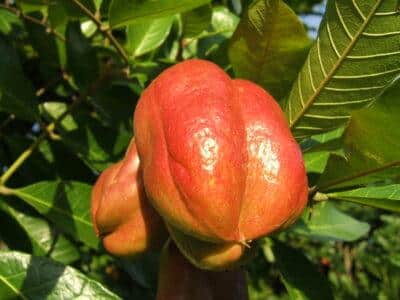Did you know that there are some foods that are popular in other countries that are banned in the United States? In an effort to keep citizens safe from harm, the government has banned the following food items. Is that a good thing or a bad thing? You decide.
1. Kinder Surprise Chocolate Eggs. Popular in Europe, these eggs contain a non-edible toy hidden inside a plastic capsule.
Since a 1938 federal law prohibits non-edible objects within food products, Kinder Eggs are banned in this country. Each year, U.S. customs officials seize thousands of Kinder Eggs at the border, as travelers attempt to bring these potential choking hazards home.
2. Fugu. If it is not prepared properly, this Japanese puffer fish can kill you. Fugu contains potentially deadly amounts of tetrodotoxin, a neurotoxin that can cause paralysis or asphyxiation.
In the U.S. it is illegal to catch, to harvest, to serve or to eat fugu.
3. Casu Marzu. It may look like a creamy cheese, but Casu Marzu, a delicacy in Sardinia, Italy, is made by placing fly larvae into Pecorino cheese. When the larvae hatch, they speed up the fermentation process and help give the cheese its creamy texture.
That unusual – and unhealthy — means of production has caused it to be banned in the U.S.
4. Haggis. Haggis, a food produced in Scotland, contains sheep lung.
Christian Heroes For Christian Kids: These Amazing Stories Are Putting God Back Into History!
The USDA has prohibited foods containing lungs since 1971, and haggis is no exception.
5. Ackee. In Jamaica, this fruit is often boiled and cooked with salted cod. However, when it has not ripened properly, ackee can contain dangerously high levels of hypoglycin A and B, which can lead to coma or death upon consumption.
6. Shark fin. Long a delicacy in China, shark fin has been banned in eight states, largely to support conservation efforts of certain shark species.
Shark finning, which has affected global shark populations, includes finning the shark and then throwing it back into the ocean.
7. Horsemeat. Although there is no official ban of horsemeat, federal law prohibits tax dollars being spent on the inspection of horsemeat and of horse slaughterhouses. Since USDA inspections are required for food that is sold here, this law effectively prevents horsemeat from being sold in U.S. restaurants or supermarkets.
8. Beluga caviar. The U.S. government has banned the importing of beluga caviar as a protective measure against overfishing of beluga sturgeon, primarily in the Caspian Sea.
9. Pig’s blood cake. A popular dish in Taiwan, pig’s blood cake includes pork blood and sticky rice. The USDA has banned it here due to sanitary concerns.
10. Sassafras oil. Sassafras has been banned because it has been linked with certain cancers and with liver and kidney damage. Artificial sassafras flavoring is used for making root beer in the U.S.
11. Queen conch. With overfishing threatening its population, the queen conch has been protected since 2003 by a U.S. law making importation of the large sea snail illegal.
Now that you know some of the foods our government banned, it is interesting to note another piece of food banning information. Since 2011, the French government has banned tomato ketchup in its elementary schools. Apparently, the government was concerned that the condiment, which is so omnipresent in the U.S., would overshadow the taste of French food.
Do you think some foods should be banned in the U.S.? Share your thoughts in the section below:
Sources:
https://www.thrillist.com/eat/nation/foods-illegal-in-the-united-states-of-america-thrillist-nation
https://www.buzzfeed.com/ryankincaid/banned-international-foods?utm_term=.vamn4AXwa#.ohwdQ9w2m
https://www.delish.com/food/g2012/banned-food/
https://www.oola.com/dishes/13793/17-international-foods-that-are-totally-banned-in-the-us-have-you-tried-any-of-these-before/
Tired Of Losing Your Freedoms And Looking For Another Country? Read More Here.
 Off The Grid News Better Ideas For Off The Grid Living
Off The Grid News Better Ideas For Off The Grid Living





